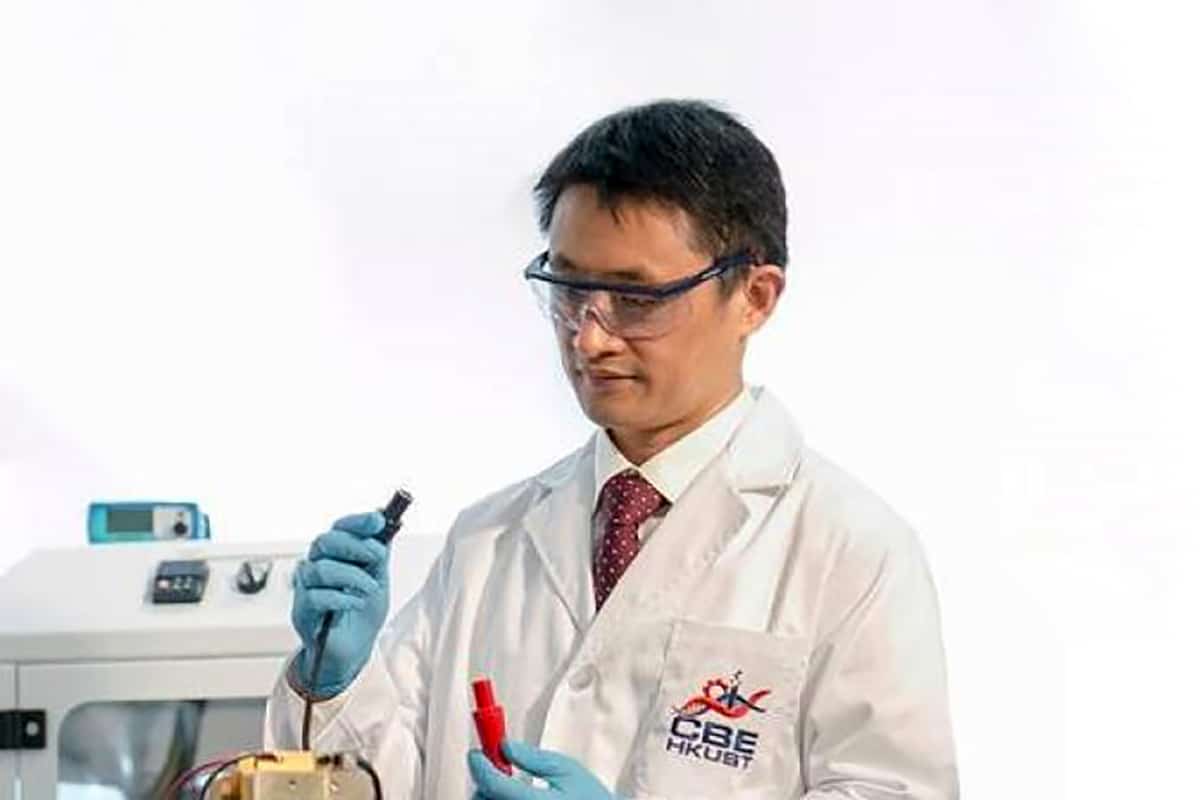
Hydrogen fuel cell technology represents one of the alternative solutions for future clean energy systems as it generates power by converting hydrogen and oxygen into electricity without emitting carbon emissions. Despite its environmental benefits and years of development, fuel cells are still not widely commercialized. The high cost and low durability of platinum-based electrocatalysts for the oxygen reduction reaction hinder their wide application, and the development of non-precious metal electrocatalysts is limited by their low performance.
Now, a team of researchers at the Hong Kong University of Science and Technology (HKUST) has developed a new hydrogen fuel cell that is not only the world’s most durable to date but is also more cost-effective, paving the way for a wider application of green energy in the pursuit of a carbon-neutral world.
Researchers designed a hybrid electrocatalyst that consists of atomically dispersed platinum (Pt) and Iron (Fe) single atoms and Pt-Fe alloy nanoparticles. The new formula could cut down the proportion of platinum used by 80% and set a record in terms of the cell’s durability level.
The new hybrid catalyst developed by the team managed to maintain the platinum catalytic activity at 97% after 100,000 cycles of accelerated stress test, compared to the current catalyst, which normally sees a drop of over 50% in performance after 30,000 cycles. In another test, the new fuel cell showed no performance degradation even after 200 hours of operations.
The new catalyst has three different active sites for the reaction – instead of just one in current catalysts – which contributes to its excellent performance. Using a formula combining atomically dispersed platinum, single iron atoms, and platinum-iron nanoparticles, the new mix accelerates the reaction rate and achieves a catalytic activity 3.7 times higher than the platinum itself. Theoretically, the higher the catalyst activity, the greater the power it delivers.
“Hydrogen fuel cell is an energy conversion device essential for our aspiration of achieving a carbon-neutral world, there is a need to expand its use amidst our fight against climate change,” said Prof. SHAO Minhua, the lead researcher of the study recently published in the journal Nature Catalysis. “We are delighted to see our research findings bringing this goal a step closer. Thanks to the Government’s Green Tech Fund, we will seek to further refine the catalyst and make it compatible with fuel cell vehicles and other electrochemical devices.”
HKUST builds world’s most durable hydrogen fuel cell to date
Source: Global Access News

No comments:
Post a Comment